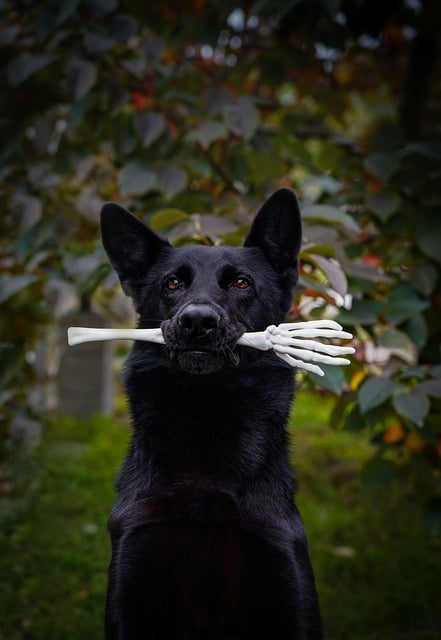German Shepherds are known for their versatility, intelligence, and loyalty, making them one of the most popular dog breeds worldwide. As omnivores, German Shepherds can consume a variety of foods, including beef, as part of a balanced and nutritious diet. However, it is essential to understand the proper way to incorporate beef into a German Shepherd’s diet to ensure their overall health and well-being.
The Nutritional Value of Beef for German Shepherds
Beef is a rich source of high-quality protein, essential amino acids, and various vitamins and minerals that can benefit German Shepherds. Some of the key nutrients found in beef include:
-
Protein: Beef is an excellent source of complete, high-quality protein, which is essential for maintaining muscle mass, supporting organ function, and promoting overall health in German Shepherds.
-
Iron: Beef is a significant source of iron, which is crucial for the production of hemoglobin, the protein in red blood cells that carries oxygen throughout the body.
-
Zinc: Beef contains zinc, a mineral that plays a vital role in immune function, wound healing, and cell growth and development in German Shepherds.
-
Vitamin B12: Beef is a rich source of vitamin B12, which is necessary for the proper functioning of the nervous system and the formation of red blood cells.
-
Selenium: Beef provides selenium, an antioxidant that helps protect cells from damage and supports a healthy immune system in German Shepherds.
Preparing Beef for German Shepherds
When feeding beef to a German Shepherd, it is essential to ensure that the meat is cooked thoroughly and free of any bones or other potential choking hazards. Uncooked or undercooked beef can harbor harmful bacteria, such as Salmonella and E. coli, which can cause food-borne illnesses in dogs.
To prepare beef for a German Shepherd, follow these guidelines:
-
Cook the Beef Thoroughly: Ensure that the beef is cooked to an internal temperature of at least 165°F (74°C) to kill any potentially harmful bacteria.
-
Remove Bones and Excess Fat: Bones can pose a choking hazard and can also splinter, potentially causing internal injuries. Excess fat can lead to digestive issues and pancreatitis in German Shepherds.
-
Cut the Beef into Bite-Sized Pieces: Cut the cooked beef into small, bite-sized pieces to make it easier for your German Shepherd to chew and digest.
-
Introduce Beef Gradually: When adding beef to your German Shepherd’s diet, introduce it gradually to allow their digestive system to adjust. Start with small amounts and monitor for any adverse reactions, such as diarrhea or vomiting.
Incorporating Beef into a Balanced Diet
While beef can be a valuable addition to a German Shepherd’s diet, it should not be the sole source of nutrition. A balanced diet for a German Shepherd should include a variety of protein sources, carbohydrates, fats, vitamins, and minerals.
Here’s an example of a balanced diet plan for a German Shepherd that includes beef:
Breakfast: Cooked lean ground beef (1/4 cup) mixed with scrambled eggs (1 large) and shredded Colby jack cheese (1 tbsp)
Lunch: Purina Pro Plan Sensitive Skin and Stomach Salmon formula (1 cup)
Dinner: Chicken/rice wet food (1/2 cup) mixed with pre-soaked dry food (1/4 cup) and plain yogurt mixed with pumpkin (2 tbsp each)
It’s important to note that the specific dietary needs of a German Shepherd can vary based on factors such as age, activity level, and overall health. It is recommended to consult with a veterinary nutritionist or your dog’s veterinarian to develop a personalized diet plan that meets your German Shepherd’s unique nutritional requirements.
Potential Risks and Considerations
While beef can be a healthy addition to a German Shepherd’s diet, there are some potential risks and considerations to keep in mind:
-
Allergies: Some German Shepherds may be allergic to beef or other proteins. If you notice any adverse reactions, such as skin irritation or digestive issues, discontinue feeding beef and consult your veterinarian.
-
Pancreatitis: Feeding too much fat, including from beef, can increase the risk of pancreatitis in German Shepherds. It’s essential to monitor your dog’s fat intake and consult with a veterinarian if you have any concerns.
-
Dietary Imbalances: A diet consisting solely of beef may lead to nutrient deficiencies or imbalances in German Shepherds. It’s crucial to ensure that your dog’s diet includes a variety of protein sources, carbohydrates, fats, vitamins, and minerals.
-
Portion Control: Beef should be fed in moderation as part of a balanced diet. Overfeeding beef can lead to weight gain and other health issues in German Shepherds.
By understanding the proper way to incorporate beef into a German Shepherd’s diet and being mindful of potential risks, you can ensure that your furry friend enjoys the benefits of this nutritious protein source while maintaining optimal health and well-being.






